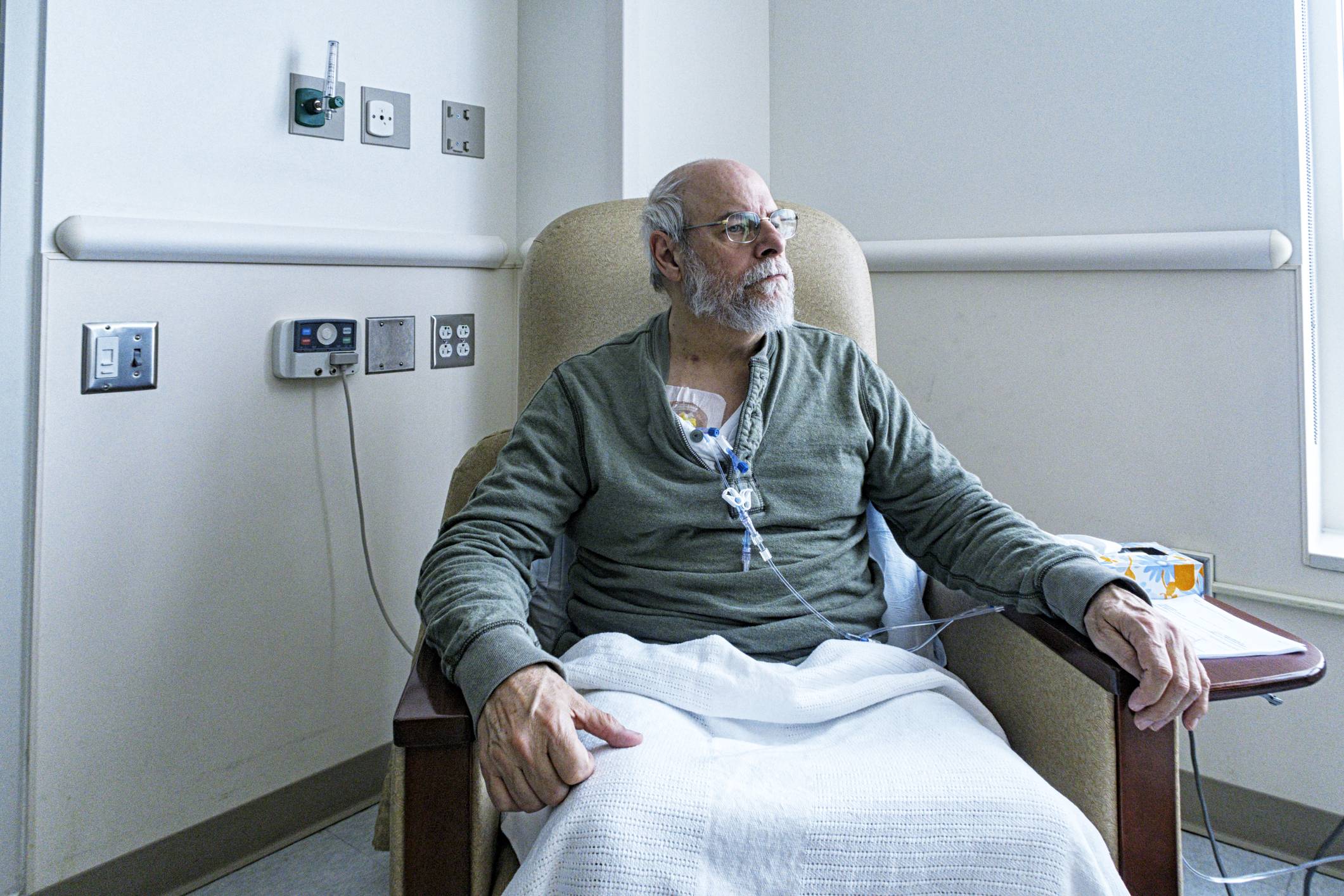March is National Colorectal Cancer Awareness Month, which emphasizes educating patients about the risks of colon and rectal cancer and the importance of receiving consistent screenings. It has been estimated that men have a 1 in 23 risk of developing colorectal cancer, while women have a 1 in 25 risk.¹
If detected early, colorectal cancer has a good 5-year survival rate. Even so, being treated for colorectal cancer is stressful with significant risks and the potential for complications. It’s understandable for patients to have concerns about it. If your patients are concerned about the potential for colorectal cancer for themselves or their loved one, how can you educate them?
Risk Factors
Patients should know colorectal cancer risk factors related to genetic and lifestyle factors. For example, some patients may have inherited gene mutations that have been linked to an increased risk of colorectal cancer. This can include Lynch and familial adenomatous polyposis, both of which also increase the risk for several other types of cancers.² Race can also be a risk factor; Black Americans have the highest rates of colorectal cancer incidence of any ethnic group in the United States, even when adjusting for socioeconomic factors.³
Risk factors can also include the following:
- A family history of colorectal cancer
- A personal history of colorectal polyps
- Older age
- Inflammatory bowel disease
- Smoking and heavy alcohol use
- Diabetes
- Inactive lifestyle
- Obesity
- Radiation therapy for previous cancers
Symptoms
Initially, many patients with colorectal cancer won’t experience any symptoms, and for those who do, they’ll vary depending on the size and location of the cancer.⁴ Symptoms may include the following:
- Rectal bleeding
- Blood in the stool
- A lasting change in bowel habits (diarrhea, constipation, other changes to the stool’s consistency)
- Unexplained weight loss
- Fatigue
- A feeling of an oncoming bowel movement that doesn’t empty
Screening and Treatment
Medical professionals often recommend that patients begin receiving colon cancer screenings at age 50, and younger if they are at a higher risk. Screening for colorectal cancer with a colonoscopy and, if needed, a biopsy can determine if the patient has colon cancer. Patients may also be asked to take a Cologuard test that detects trace amounts of blood in the stool.
Treatment will depend on the size, location, and stage of the cancer. If cancer is found very early and entirely contained within a polyp, a physician may be able to remove it during the colonoscopy.⁵ More polyps may also need to be removed, and surgery may be required. More advanced forms of the cancer require surgery, such as a partial colectomy. Chemotherapy may be required to shrink the cancer before surgery or kill cancer cells after surgery.
Survival Rate
The 5-year survival rate for colorectal cancer will depend on the spread of the cancer, or whether it is localized, spread regionally, or spread distantly (regionally refers to spreading near the colon or rectum, while distant refers to spreading to organs of the body further away). The American Cancer Society said that the 5-year survival rates for colorectal cancer from 2010 to 2016 was as follows⁶:
- 91% for localized colon cancer, 89% for localized rectum cancer
- 72% for regional colon cancer and regional rectal cancer
- 14% for distant colon cancer, 16% for distant rectal cancer
Prevention
For risk factors patients cannot avoid, their best method of prevention is talking with their healthcare provider and starting colon cancer screenings before age 50. For other risk factors, lifestyle changes that can reduce risk. These include:
- Quitting smoking
- Reducing or eliminating alcohol intake
- Losing weight
- Exercising more frequently
- Integrating more fruits and vegetables into the diet
References
- Key statistics for colorectal cancer. How common is colorectal cancer? American Cancer Society. https://www.cancer.org/cancer/colon-rectal-cancer/about/key-statistics.html. Updated January 12, 2021. Accessed March 15, 2021.
- Colorectal cancer risk factors. Colorectal cancer risk factors you cannot change. American Cancer Society. https://www.cancer.org/cancer/colon-rectal-cancer/causes-risks-prevention/risk-factors.html. Updated June 29, 2020. Accessed March 15, 2021.
- Augustus GJ, Ellis NA. Colorectal cancer disparity in African Americans: risk factors and carcinogenic mechanisms. Am J Pathol. 2018;188(2):291-303. doi:10.1016/j.ajpath.2017.07.023
- Colon cancer — symptoms and causes. Mayo Clinic. https://www.mayoclinic.org/diseases-conditions/colon-cancer/symptoms-causes/syc-20353669. Accessed March 15, 2021.
- Colon cancer — diagnosis and treatment. Mayo Clinic. https://www.mayoclinic.org/diseases-conditions/colon-cancer/diagnosis-treatment/drc-20353674. Accessed March 15, 2021.
- Survival rates for colorectal cancer — 5 year relative survival rates for colon and rectal cancer. American Cancer Society. https://www.cancer.org/cancer/colon-rectal-cancer/detection-diagnosis-staging/survival-rates.html. Updated January 29, 2021. Accessed March 15, 2021.
This article originally appeared on Cancer Therapy Advisor
